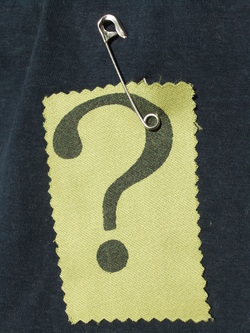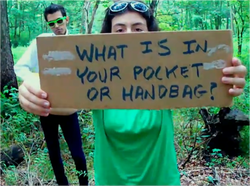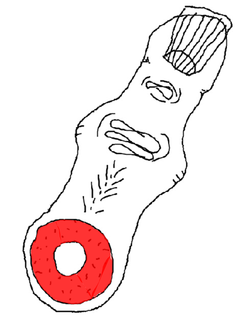In memory of Barbara Ann Burch.
“Remember her. She is forgetting.” (2)
(2) Under Milk Wood, p. 52.
|
The sunset poem of the Reverend Eli Jenkins. (1) In memory of Barbara Ann Burch. “Remember her. She is forgetting.” (2) (1) Dylan Thomas, Under Milk Wood, London: Dent, 1995, pp. 57-58.
(2) Under Milk Wood, p. 52.  Yesterday afternoon was spent wandering aimlessly around Nottingham city centre. On the way to nowhere I stopped off at Nottingham Contemporary where two new exhibitions have just opened. Not really in the mood for art, I devoted most time to looking at all the tiny trinkets on sale in the shop. Trendy, totally superfluous treasures were mixed in with the art publications and designer tat. Exiting briefly into the sunshine I promptly plunged into a very different world: that of the Broadmarsh Shopping Centre. Hurrying past the serried ranks of empty retail units I descended into the bowels of the earth. Reaching the end of the escalator I glanced momentarily at the entrance to the so-called “City of Caves”. This place always makes me chuckle: I am supposed to have a professional interest in museums and heritage. Nevertheless, in the decade that I’ve spent living in Nottingham I have not once entered this tourist-attraction-that-time-forgot. Moving on I glimpsed another sad sight: Gordon Scott. This shoe shop has been in the Broadmarsh Shopping Centre ever since the monstrous mall opened in the early 1970s. Now all that’s left are a few pairs of sale items and a couple of extraordinarily bored-looking staff waiting to be made properly redundant. Even more depressing is the disappearance of the mechanical monkey from the shop window. His loopy tricks on the horizontal bar were, for me, the centre’s absolute high point. He was the retail world equivalent of Wollaton Hall’s George the gorilla.
These textual “traffic signals” had a dual purpose. Firstly, of course, they signified the Riddler. This is not the first time that this cartoon villain has featured in Newling’s art: a precedent was Between (Even the Riddler Makes Wishes), an installation from 1996 commissioned and hosted by Nottingham’s Broadway Cinema and Arts Centre. Yesterday at the Broadmarsh Centre the Riddler’s question marks had an additional function. Passersby were stopped and asked to identify something that they valued. In return they were given a swatch of the same cloth used to make the Riddler’s jacket. They could then head off into the crowds with this pinned to their chests – generating riddles wherever they went. My smart-arse answer to the question – what do you value? – was respect. Because that’s the quality I appreciate most in people and groups: “the condition or state of being esteemed, honoured, or highly thought of.” If you think about it, the root cause of our society’s ills is the general lack of respect for politicians, big business, organisations and for so many individuals we come into contact with in our daily lives. And how many of us manage to get through life with their self-respect intact? Newling intends to collate the “public values” gathered together at the Broadmarsh Centre and integrate them into a talk to be given as part of his “Ecologies of Value”, on show at Nottingham Contemporary until 7th April. My advice would be to get there as soon as you can – and ideally before the whole of Nottingham city centre goes into liquidation and all that we value goes with it.
 Screencap from Life in a Day Over the weekend I spent more hours than is healthy at Birmingham Airport. The reason for my enforced stay was Britain’s inability to cope with a bit of ice and snow. To pass the time I decided to overdose on coffee and, with too much caffeine in my bloodstream and a lack of real spice in my life, I reached for my Sony eReader. The story I chose to read seemed appropriate given my plight: The Machine Stopped by E.M. Forster (1879-1970). Written in 1909 this novella is scarily prescient. It concerns an imaginary future in which the human race lives underground and eschews direct contact with the outside world. To achieve this it has constructed The Machine. This networked intelligence tends to the human race’s every need, be it physical, intellectual or spiritual. As a result, the thought of leaving the glorious isolation of one’s artificial cocoon is an anathema. Natural air, daylight, direct human contact – all are nauseating to people conditioned to living their lives sat on a chair, staring into a monitor and waiting for their virtual friends to message them with an original idea. Don’t forget, all this was written over a century ago. I am now back at home, safe and sound after my Birmingham exile. And what am I doing? Well, I’m sat in a chair, staring at a monitor, of course. Meanwhile life is probably still going on outside. One thing of which I am certain is that the world existed on Saturday 24 July 2010. I know this because I’ve just watched the film “Life in a Day”. It’s a 94 minute edited compilation of 80,000 YouTube clips all recorded on a single day in July a few years ago. One of the best bits of the film is the sequence that features Angolan women chanting as they work. I am clearly not alone in this view. A YouTube user by the name of Pellentior has uploaded the music. While listening I scrolled down to the comments, where I found the following post by “cherryblossohm”: When watching this scene it made me feel like I was doing it all wrong. What exactly? Idk [I don’t know], life? Sitting here, on my ipad, cell in one hand and tv on... when I’m up to date on stupid status updates in actuality I’m missing out. I think I want to spend my time on this earth in a different light. Light as in, the sun lol. Out and be humbled to experience how others around the world enjoy living. Cuz I know I’m not. In a single paragraph cherryblossohm has confirmed the sad truth of Forster’s prophetic tale. I just hope for all our sakes that he got at least one thing wrong. After all, we will be in for one hell of a shock if the machine does ever stop working.  It is reported this morning that certain leading supermarkets in Britain and Ireland have been selling “beef burgers” that contain pork and horsemeat.(1) Indeed, almost a third of one product tested had more in common with the racehorse Frankel than it did Daisy the cow. It’s as if I’ve woken to discover something I’ve long suspected: we are all in fact characters in Dylan Thomas’ magnificent Under Milk Wood.(2) This “play for voices” recounts a day in the life of the residents of Llareggub on the Welsh coast.(3) One of the most memorable personalities is the town’s butcher, Benjamin Beynon. In his first appearance he is dressed “in butcher’s bloodied apron” with “a finger, not his own, in his mouth.” His poor wife’s sleep has been disturbed by a dream that Mr Beynon has been persecuted “for selling owl meat, dogs’ eyes, manchop.” Not surprisingly, breakfast in the Beynon household is no easy affair, especially when the butcher announces that the fried liver they are eating is “pusscat”:
Mr Beynon then proceeds to list the savoury delights enjoyed by the family that week: “Monday, otter. Tuesday, shrews...” Lily Smalls, who is also tucking into the breakfast, tries to placate her distraught mother by dismissing Mr Beynon as “the biggest liar in town.” But Mrs Beynon is having none of it: MRS BEYNON Don’t you dare say that about Mr Beynon. LILY SMALLS Everybody knows it, mum. MRS BEYNON Mr Beynon never tells a lie. Do you, Ben? MR BEYNON No, Bess. And now I am going out after the corgies, with my little cleaver. MRS BEYNON Oh, Lily, Lily! Perhaps it would be wise to keep this little scene in mind next time you’re out shopping for tasty morsels in one of those posh supermarkets that “never tells a lie”. Who knows? Perhaps it’s pusscat on the shelves? ___ Note (1) “‘Horsemeat beefburgers’ investigated in UK and Ireland”, BBC News, 16/01/2013, http://www.bbc.co.uk/news/world-europe-21038521 (2) Dylan Thomas, Under Milk Wood, London: Dent, 1995. The incident recounted above appears on pages 27-28. (3) It is instructive to read the name of this fictional town backwards.  Plans to erect a statue of George Harrison in Henley-on-Thames have been dropped following opposition from The Beatles’ widow, Olivia Harrison. Instead she is reported to favour “a community project in his name.”(1) This incident reflects longstanding reservations about devoting so much time and money in producing yet another mute monument. Wouldn’t it be better to celebrate a life in ways that benefit the present? And is this not all the more necessary in our increasingly digital age? With this in mind, it is salutary to see the emergence of a collective commemoration of Aaron Swartz (1986-2013). During his short life this freedom of speech advocate urged people to sign up to his “Guerrilla Open Access Manifesto”. His tragic suicide has given rise to the Twitter trend, #pdftribute whereby academics are encouraged to upload their scholarly papers that are withheld from public circulation due to what Swartz condemned as “the privatization of knowledge”. The result is a collaborative, politically motivated memorial act that is the antithesis of an effigy on a stone pedestal. It is instead a living, livid legacy that is entirely in keeping with the circumstances that led to the death of Aaron Swartz.. ___ Note (1) “George Harrison Henley-on-Thames statue campaign halted”, BBC News, 12/01/2013, http://www.bbc.co.uk/news/uk-england-oxfordshire-20997626.  History today according to the BBC The front page of today’s BBC news website reveals a great deal about how historical events impinge on the present. This needs to be seen as indicative of a widespread obsession with the past. But it shouldn’t make us overlook the fact that the primary interest is current affairs. Simply put, history needs to have some contemporary resonance in order to count as “news”. This is the case with the deaths of two men in their 90s. Their passing is, of course, a personal loss to their friends and relatives. I never knew them, but I am invited to pay my respects because these two gentlemen feature in the collective consciousness. This is due to two events that form part of the national story, namely the Jarrow March of 1936 and the experiences of Britons incarcerated overseas during the Second World War. The demise of Con Shiels (the last survivor of the Jarrow March) and Alfie Fripp (a veteran of no fewer than twelve POW camps) marks the moment when two iconic occurrences pass from lived experience to “history”. This liminal moment gives the past a special frisson. We watch as the final living link to a momentous event is broken. This is history in the making. There are lots of other issues that flow from these particular stories. Is history made by the many or the heroic (or villainous) few? Can we learn from “everyday heroes” like Con Shiels and Alfie Fripp? If so, what part (if any) do we play in history? And what actually counts as a historical event? How influential was the Jarrow March? Did it change the course of history? Or is its significance given undue importance by subsequent commentators? In the BBC’s report of the death of Con Shiels it is notable that the trade unionist, Steve Turner is quoted calling for a “new ‘rage against poverty’”. Similarly, in 2011 the Jarrow March was re-enacted to mark its 75th anniversary and draw attention to youth unemployment. This demonstrates how a historical “fact” is nothing without interpretation. And this makes it inevitable that the politics of the present will get woven into the patterns of the past. The Jarrow example provides a flavour of things to come. Get ready for the bickering and arguing that will be triggered when Margaret Thatcher dies! The shadow of the Iron Lady looms large over another historically-flavoured news story: the status of the Falkland Islands (Islas Malvinas). This latest episode relates to Cristina Fernandez de Kirchner’s open letter to British prime minister, David Cameron in which she decries the continuance of “a blatant exercise of 19th-century colonialism” and calls for a negotiated solution as urged by the General Assembly of the United Nations way back in 1965. Interestingly enough, one of the BBC web links connected to de Kirchner’s rhetorical salvo refers to new documents released under the British government’s 30-year rule. These reveal just how surprised Thatcher was by the Argentine invasion. Access or restrictions concerning such primary evidence play a crucial role in determining how history gets written and re-written. Another link stemming from the latest crisis facing the Falkland Islands reminds us of the glorious / tragic events of 1982 via the commemorative events marking the thirtieth anniversary of the end of the Anglo-Argentine war. An anniversary such as this represents an additional way in which the past enters the present. The commemorative re-enactment of the Jarrow March is a case in point. A further example is to be seen amongst today’s crop of news stories, namely the centenary of Rhiwbina garden village in Cardiff. But what about events of today that are destined to become tomorrow’s history? Well, the year that has just passed has gone down in the record books as the “second wettest on record”. There is reason to believe that this will soon be surpassed, with reports that “extreme rainfall” is on the rise. And this is an appropriately apocalyptic note to end this account of history today. Because one of the factors motivating our love of the past is a widespread anxiety about the future. History’s near cousin is nostalgia. Poverty, unemployment and war take on a rosy hue thanks to the patina of time. Using the vantage point of the present we know that things worked out alright in the end... Or did they? |
Para, jämsides med.
En annan sort. Dénis Lindbohm, Bevingaren, 1980: 90 Even a parasite like me should be permitted to feed at the banquet of knowledge
I once posted comments as Bevingaren at guardian.co.uk
Archives
July 2019
Categories
All
_
Note All parasitoids are parasites, but not all parasites are parasitoids Parasitoid "A parasite that always ultimately destroys its host" (Oxford English Dictionary) I live off you
And you live off me And the whole world Lives off everybody See we gotta be exploited By somebody, by somebody, by somebody X-Ray Spex <I live off you> Germ Free Adolescents 1978 From symbiosis
to parasitism is a short step. The word is now a virus. William Burroughs
<operation rewrite> |